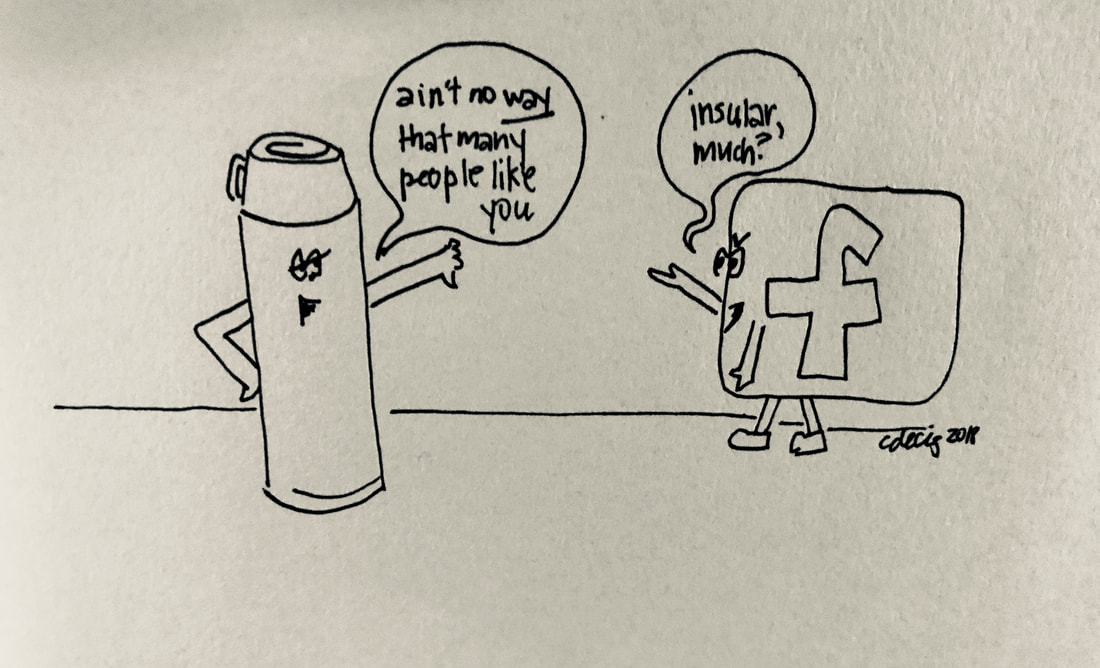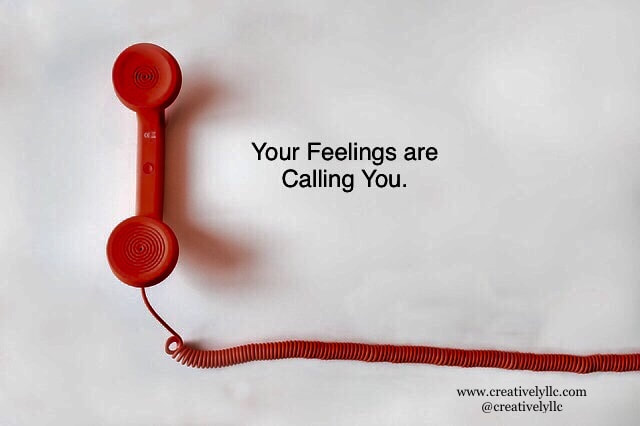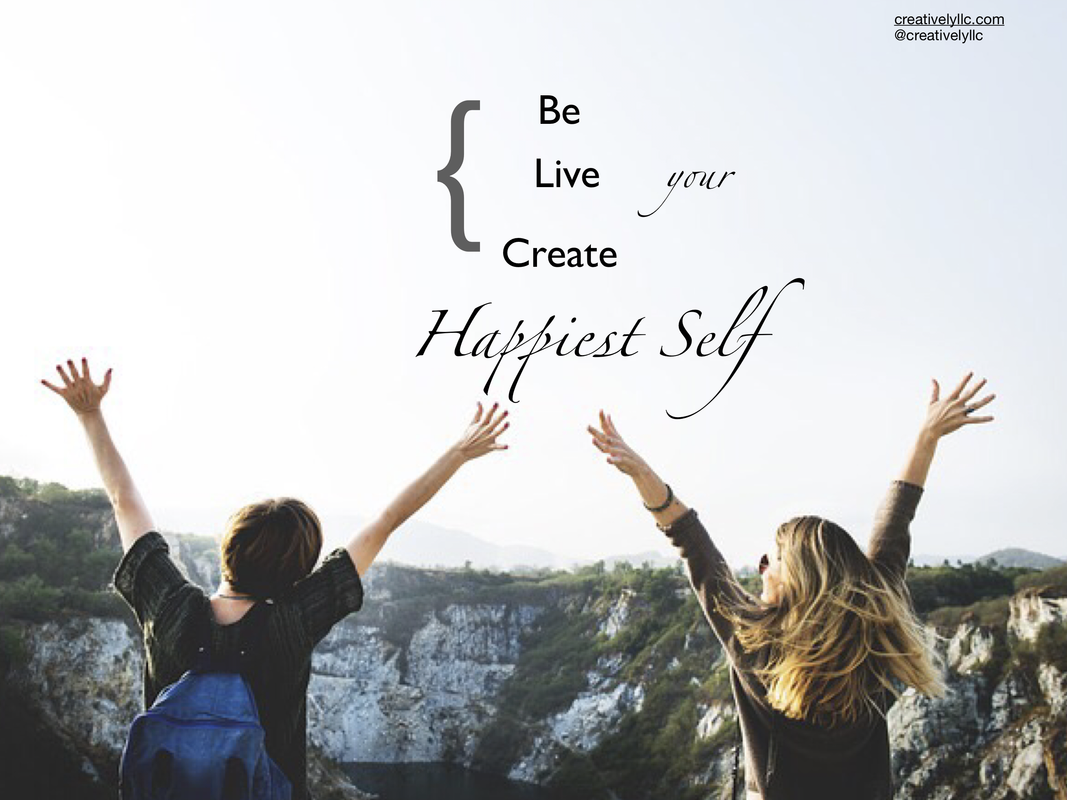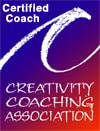|
All human behavior exists in each of us, on a spectrum. Not unrelated to our gene expression, some of us experience some behaviors more than others, but all have the capacity in a biological sense for all behaviors. Let this set the framework for a discussion about the topic of becoming too insular.
We are all creatures of habit. Habit breeds security and comfort from routine and reliability. We biologically relax and are our more natural selves in known circumstances; less so in unknown. As biological organisms we are “pre-set” to tend towards situations we have identified as easier and safer, in this case, by familiarity. We are also social organisms. Historically, Homo sapiens live in groups that over time evolved into societies that are co-dependent and mutually beneficial. Our natural “setting” is to regularly interact and exist in a society with others, to survive the stressors of life. Throughout history, around the world, this model has successfully repeated itself. Fast forward to modern day society in the United States. Making sweeping cultural generalizations, here is what we find: family units each in their own households, working long hours to support themselves (children, spouses, etc) each living parallel to each other, rather than in a network. Frequently, we are so dominated by providing for our immediate needs we no longer have time to expand and attend to our social needs. We are also turned inward by our addictions to technology, social media, instant gratification and convenience. Really, in today’s world, no one is fully immune. Combining our default setting to what is familiar, the societal pressures putting us in isolated lanes, modern living, and our biological imperative for social interaction, we often find ourselves today unable to meet all our needs. We end up becoming insular: closed off to other experiences around us and entrenched in the demands and routines of our daily lives. Long term it is not healthy for us, and in fact, this sort of isolation is a hallmark of depression. Let’s return to the “digging the hole” analogy from a few posts back. If we are creatures of habit and routine, and remembering neuroplasticity capabilities of our brain we have also previously discussed, then it follows our best choice is to awkwardly demand ourselves to be more social, until it feels more integrated, natural and safe to us. We have to swim against the current in which we find ourselves today with technology, financial demands and societal expectations to meet this basic need of interaction. We have talked about building support systems in posts before and this is not very different- expanding the network and making human connections is a necessary part of a healthy lifestyle. The ways in which we might do this today have changed from even a decade ago- but the opportunities are there if you risk them. Come to my couch and talk about obstacles you face that isolate you. Let’s talk about how to identify safe opportunities to end your loneliness and bring you more support! (C) 2018 Creatively, LLC What is your emotional vocabulary?
Do you know what you feel, when you are feeling it? Do you know what angry, worried, happy, thoughtful, grateful and more feel like? Do you use these words to describe and recognize how you feel? Do you even know very many of these words? How many feelings can you list, right now? How hard or easy that task is, is a telling thing. Surprisingly, it is important to know what you feel (that is why we therapists are always asking you!) Feelings are biochemical signals from the brain to the body to communicate to you something important. All feelings have a message associated with them. Do you know what it means when you are angry? How about sad? There are some universal meanings, and many more that are personal and circumstantial conveyed to us by how we feel. Because feelings are signals of information, they want to be felt. If we feel them, their mission is accomplished and they will disperse. The problem for most of us is we block them. We block them based on how we were raised, societal expectations, to protect ourselves, and for other reasons. As a result, we carry around our suitcases chock full of unpacked emotions, everywhere we go. What does that mean for us? It might mean overreacting to smaller things. It might mean overall higher levels of stress. It can lead to things like isolation and depression. It generally feels not so great. What to do? Come to therapy of course. Let someone (me!) trained help you carefully unpack your feelings suitcases, one by one. Learn what your emotions are or were telling you, and how/when/why they got packed away. Learn how to identify and experience your emotions as they happen (mindfulness!) and how to express your needs or modify behaviors based on what they are telling you. So, Creative, that you more fully understand my question, how does that make you feel? (C) 2018 Creatively, LLC Like begets like. Positive energy attracts other positive energy. This is the concept I am interested in today. Though there are many different lenses, we are going to think about this idea as a series of good decisions.
As a therapist I will always tell you to “do your best” and most often, this is enough. I am not alone in this advice- D.W. Winnicott famously explored the “good enough mother”- I am telling you that if you consistently do your best it will probably be enough to reach your goals. When I am telling you this, I am relying on “your best” not being a singular event. As a therapist, I am relying on one “best” choice being connected to many others, with the ultimate goal of “right place right time” experiences. I believe life can be how we create it to be- not just a series of coincidences, though it is also that. Here is an example of what I mean. Often I work with my patients on building better/healthier/stronger support systems. Let’s say this is your goal. You make one good decision to follow your local neighborhood group on social media. From following the feed as part of your good decision to stay dedicated to this goal, you see a thread where you have something in common with some other neighbors which in turn leads you to a group chat. You determine based on the content of the thread this is safe and looks promising to pursue. From the group chat you find some of your neighbors with whom you have much in common have a regular get-together that also is safe and something you decide to try. You go to the event and feel good about it. One of the members invites you meet some of their friends and attend something in the community. You accept. At the event you feel synergy, support and safety. Over time this grows and you have added significantly to your support system. It is a simple chain of events, but in each decision above you did your “best” to make the right choice towards your goal, each time picking a pot of variables that are healthier, and more likely to therefore present in a combination that is good for you (the part that is “chance”). In this way you can control, guide and create your outcomes- by always doing your “best.” You are making a series of good decisions that serially change circumstances and probability in your favor. It is working with, not against, chaos, nature, fate, destiny- whatever forces you believe are at work in your life. How you direct the flow of choices matters! And it starts internally. We behave based on what we believe. So, in therapy work on what you tell yourself, your inner belief system, and what is true. Open your mind to what you can create as true. Create some new possibilities and change in your life. (C) 2018 Creatively, LLC There are many of us for whom the Winter is hard. The days are short, cold and dark. We are probably inside more, seeing the sun less, and less active. These things can exacerbate or even resurrect mood symptoms that are challenging. Let’s take a few minutes today to talk about how Winter doldrums impact creative people.
We already know that creative people feel things deeply. That means you may feel the onset of a wintertime depression strongly. Creatives- something to remember when you are feeling intense emotions- an engine cannot run on full blast indefinitely. That is to say- the more intense your feelings, the shorter the duration: depressed mood is a wave that will crest and fall. I’m not minimizing the experience or telling you you will wake up one morning “all better.” I am saying stick-and-stay, practice good self care, be around your support system, and know that the pain will naturally ease up on its own a little bit- quicker, better and more completely the better you take care of yourself in the interim. My clinical advice for the Winter doldrums: Dig the hole. Many of you have received this advice from me. Advice that another clinician gave me years ago, I pass along as sound counsel for fighting depression. It is referencing a person whose job it is to dig a hole. Professional hole digger. All this person has to do is show up to work, and the hole gets dug. If the worker doesn’t show up, it doesn’t get dug. This is the attitude we need when symptoms seem overwhelming. Ride the wave. Go through the motions. The more you can stick to your regular routine, implement your usual supports and coping skills and self care, the better you will be for it. I know when you are depressed it takes monumental effort to tie a shoe string. But do it. Go to work. Get to school. Get the kids. Get and do whatever you would usually do- dig the hole. Need more support? Add therapy to help you through this Winter. It’s natural and healthy to add to your support system to counter-balance stressors, and Creatively is here for you. And- don’t forget- 2 art workshops are available at Root Studio (starting soon!) scroll down to previous blog entries for details and offset your doldrums by boosting your creative energy. (C) 2018 Creatively, LLC Dreaming |
get more from The Creativity CoursesLiking educational topics and knowing what's hot in creativity? Creatively has online courses, with an interactive creative community, coaching sessions and more in the Creativity Courses. Want these blogposts in a newsletter? Subscribe here, and get a free gift. Cindy Cisnerosis a Creativity Coach, Creative Therapist and Professional Artist in Sykesville, Maryland. She is an expert straddling the realms of arts, creativity research, psychology, therapy, and coaching. She provides Online Creativity Counseling in Maryland and Virginia, and Online Creativity Coaching throughout the USA, Canada and the UK tailored for the discerning, imaginative, artistic, and neurodiverse. The information provided in this blog is from my own clinical experiences and training. It is intended to supplement your clinical care. Never make major life changes before consulting with your treatment team. If you are unsure of your safety or wellbeing, do not hesitate to get help immediately.
Archives
July 2024
|
|
Concierge Therapy for Creatives in Maryland
Creativity Coaching Worldwide including the USA, UK and Canada |
Telephone |
|





 RSS Feed
RSS Feed

